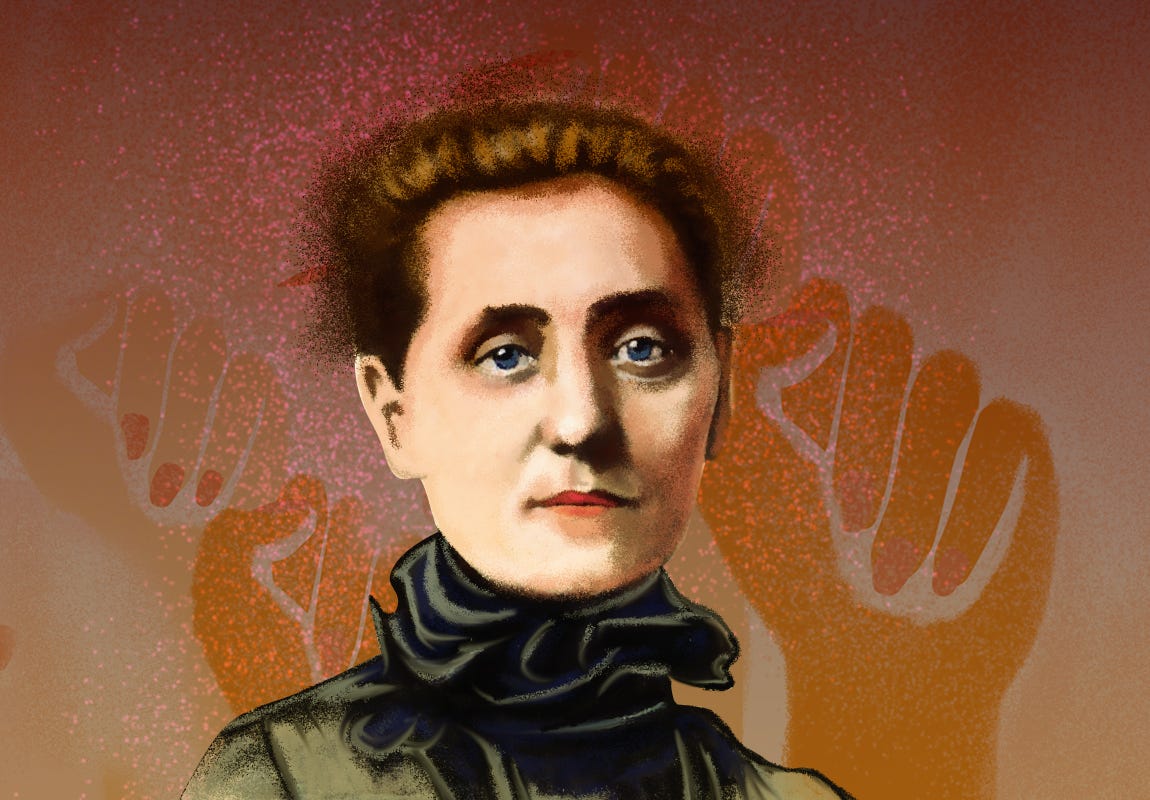Jane Addams: American social reformer
Jane Addams was an American social reformer and pacifist, best known as the cofounder of Hull House in Chicago, one of the first social settlements in North America.
Jane Addams was born on September 6, 1860 in Cedarville, Illinois. She was the eighth of nine children born to John Huy and Sarah Weber. Sadly, only five of her siblings survived infancy, and her mother passed away during childbirth when Addams was only two years old. Despite this tragedy, she enjoyed a privileged upbringing, as her father was one of the wealthiest citizens in the small farming town. He owned a prosperous mill, served in the Civil War, held local political office, and even counted Abraham Lincoln as a friend. Addams was raised with strong Christian values and a profound sense of social responsibility.
In 1881, Addams graduated with top honours from Rockford Female Seminary, becoming part of a new wave of independent, college-educated women referred to as the "New Women" by historians. Despite the strong Christian influence at Rockford, Addams' dedication to social welfare grew. She attempted to pursue a career in medicine for six years, but her poor health prevented her from doing so. However, Addams discovered her true calling during a trip to London in 1888 with her friend Ellen Gates Starr. During their visit, they explored Toynbee Hall, a settlement house in London's East End that provided vital services to impoverished industrial workers. Inspired by this experience, Addams pledged to introduce a similar model to the United States, which was undergoing the early stages of industrialization and mass immigration at that time.
The year 1889 saw the establishment of the first settlement house in the United States by Addams and Starr in Chicago's impoverished industrial west side. Hull House aimed to facilitate the exchange of knowledge between educated women and the underprivileged members of the neighbourhood, covering a range of subjects from basic skills to arts and literature. The founders envisioned a community centre where women would reside among the people they served. Addams and Starr were joined in their efforts by notable progressive reformers, including Florence Kelley, Alice Hamilton, Julia Lathrop, Sophonisba Breckinridge, and Grace and Edith Abbott. Addams led the Hull House team in providing crucial services to thousands of people each week, including a kindergarten and daycare for working mothers, a job-placement bureau, a community centre, a gymnasium, and an art gallery.
Apart from writing articles and delivering speeches about Hull House across the country, Addams expanded her efforts to improve society. Together with other progressive female reformers, she played a crucial role in advocating for establishing a juvenile court system, better sanitation and factory laws in urban areas, protective labour legislation for women, and the development of more playgrounds and kindergartens throughout Chicago.
The year 1889 saw the establishment of the first settlement house in the United States by Addams and Starr in Chicago's impoverished industrial west side.
In 1907, Addams co-founded the National Child Labor Committee, which played a significant role in the passage of a Federal Child Labour Law in 1916. She spearheaded the initiative to create a School of Social Work at the University of Chicago, which provided institutional support for a new profession for women.
Addams made significant contributions to various social movements during her lifetime. She served as the first female president of the National Conference of Charities and Corrections from 1909 to 1915. Additionally, she played an important role in the women's suffrage movement, serving as an officer in the National American Women's Suffrage Association and writing columns in support of the cause. Addams was also one of the founders of the National Association for the Advancement of Colored People (NAACP).
Addams discovered her second significant calling during World War I: advocating for international peace. As an avowed pacifist, she opposed the US's involvement in World War I, which led to a decline in her popularity and harsh criticism from some newspapers. Addams believed that people could settle disagreements without resorting to violence. She joined a group of female peace activists who toured the warring nations to promote peace.
In 1915, Addams headed the Women's Peace Party and became the International Congress of Women president shortly thereafter. Addams wrote articles and gave speeches promoting peace worldwide. Addams played a key role in the founding of the Women's International League for Peace and Freedom in 1919 and served as its president until 1929. She was also an honorary president of the organization until she passed away in 1935.
In 1931, Addams was awarded the Nobel Peace Prize for her efforts, becoming the first American woman to receive the award. She also authored a book about her work at Hull House and other books advocating peace. Although a heart attack in 1926 took a toll on her health, she persisted but never fully recovered. Addams passed away on May 21, 1935.


